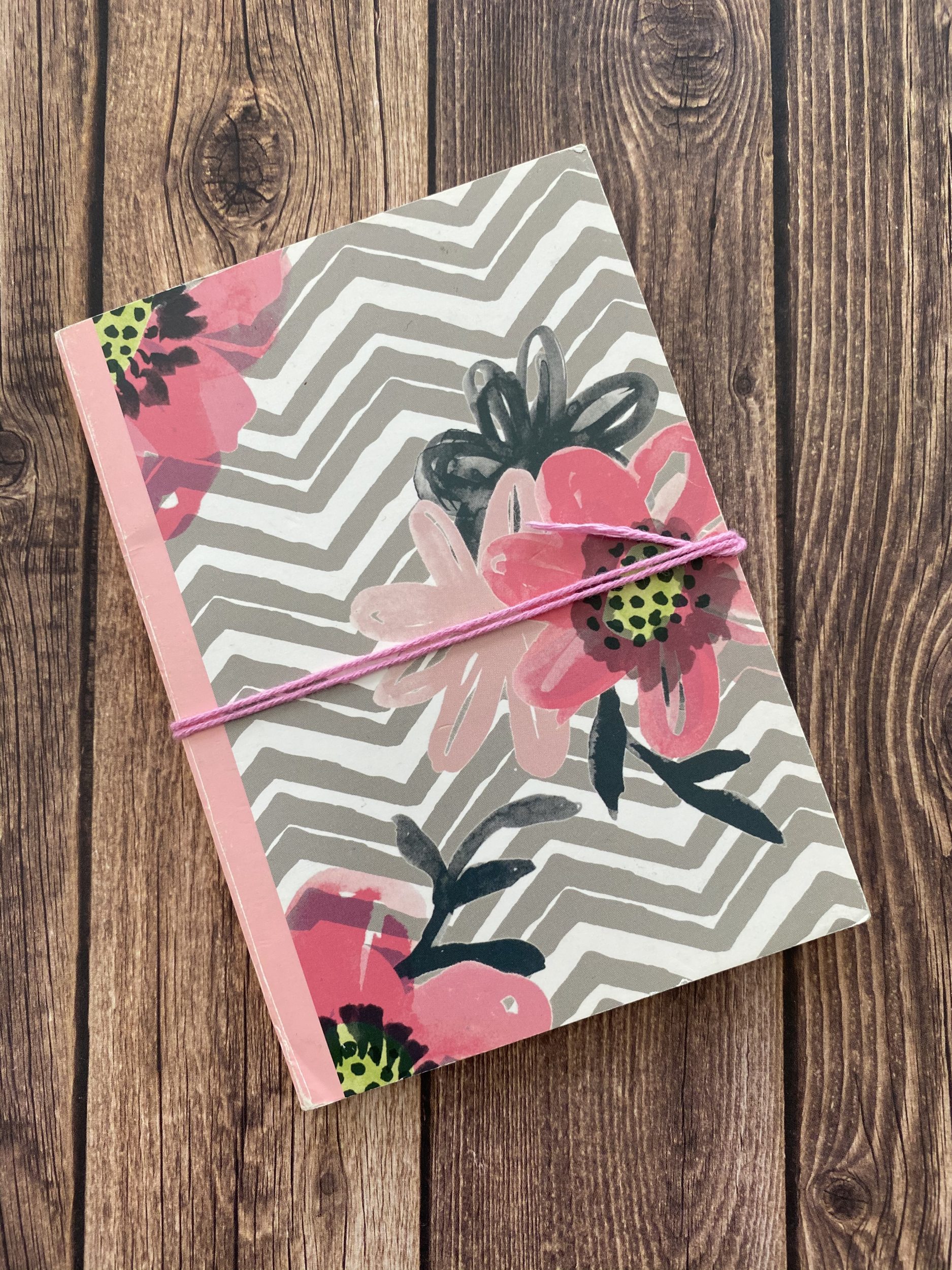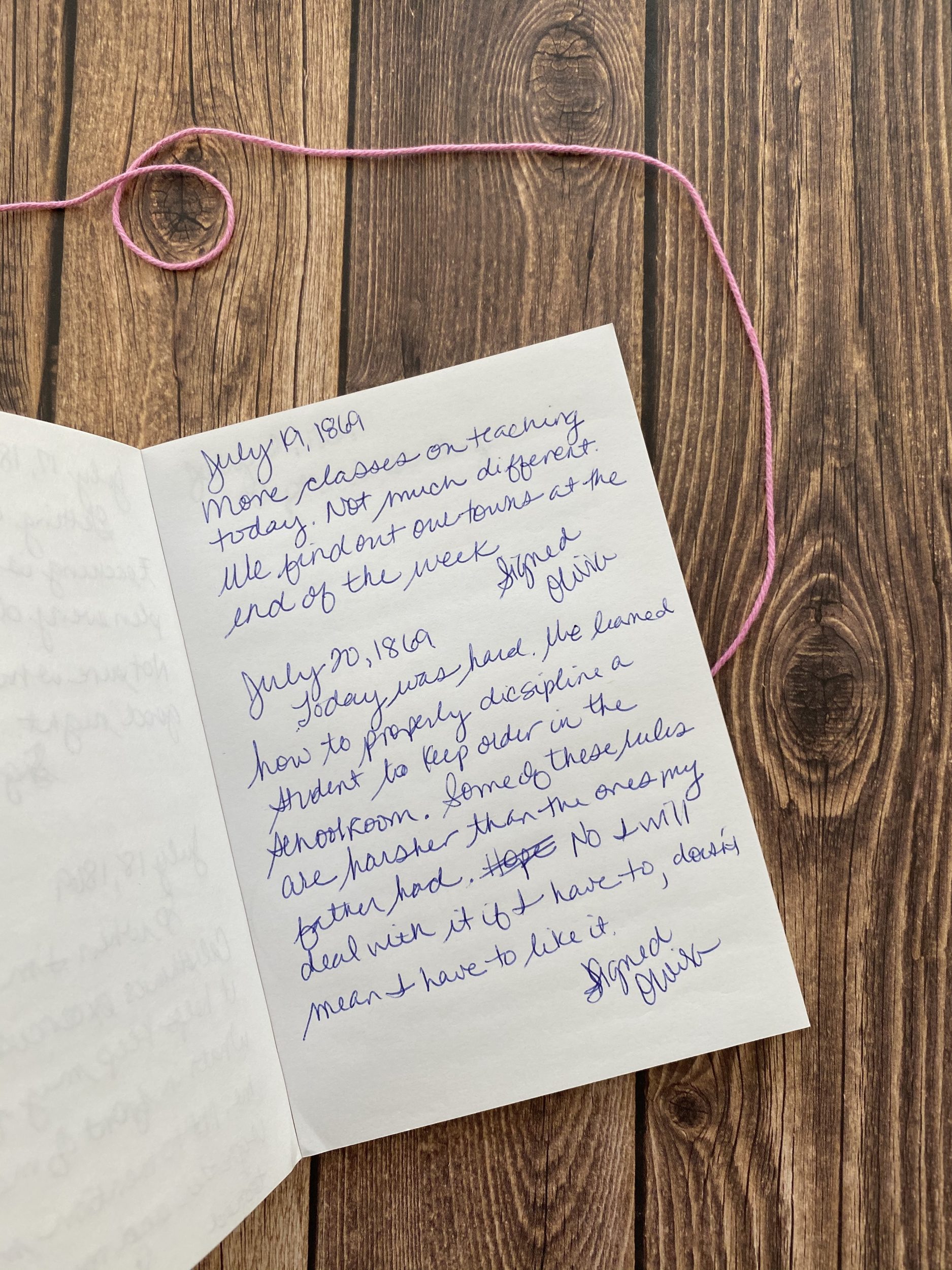
Some writers write a character journal for their characters to help them see things from their character’s perspective. But for me, I wanted my heroine to actually have a journal in my story. Not quite sure why, but capturing her journey through a journal stuck as I brainstormed my scenes.
Do you write in a journal?
If you do, do you ever worry about someone reading what you wrote?
My heroine gets handed a journal upon her start as a teacher.

In it, she’s instructed to write down the events of her days to capture what happens as a female teacher who moves West to teach in small pioneer towns.
Olivia finds her journal to be a close confidant. She enjoys documenting her observances about the places she’s been and the people she meets. Given that it’s 1869 and traveling by train across the country is a new and unprecedented event, the importance in capturing the momentous occasion is not lost on her.
She’s also very protective of her book. It never leaves her side and she would never leave it out so that someone could read it. But even if they did, she is very careful what she writes, never putting to paper her own thoughts and opinions, just in case someone else might read it and pass judgement on her.
See judgement stings and her fear of being judged stems from…well…I don’t want to give too much away.
I write prayers in a journal almost every morning.
Some entries are one full page. Others are short paragraphs. I sometimes wonder what someone would think of my shortest entry.
“Dear God. Help me today.”
Yes, I admit. I have written it just like that.
I’ve been writing down these prayers for so long, I don’t think about it anymore. It’s really between me and God, and the benefit of writing the words weighs more important than the fear of someone reading it and judging me.
And see, that’s what happens to Olivia in her character journal. Over time and with a few encouraging words from one of her pupils, Olivia’s heart slowly changes and her journal changes right along with her. It’s been exciting to flush out her journal entries so that the reader can see this change.

I even created a small diary in Olivia’s hand, so that I could think like her and feel what it might’ve been like all those years ago to have a small diary to write down words that could be read one hundred fifty years later. What she was doing was historic in 1869.
Which was why I wanted to create a character journal for her.
Something that captured all these historical events – Traveling across the country, coming west to teach in a one-room schoolhouse in order to make a difference in the life of a child, and for herself as well.
I wonder, in real life, how many of them kept a journal? And if they had any idea that we would be reading what they wrote so many years later?
This is why the act of writing in a journal is so precious to me. Over at A Slice of Orange (an outside blog I write for), I wrote a blog post on how a handwritten note can be a gift, one that lasts forever. Journals can be that type of gift.
I’m excited to finish editing Olivia’s story and her journal entries. If you’re interested in learning more about my stories check out my Going West Series page.



